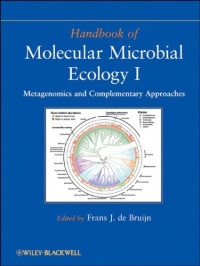
Hydrocarbon and Lipid Microbiology Protocols: Statistics, Data Analysis, Bioinformatics and Modelling
Terry J. McGenity, Kenneth N. Timmis, Balbina Nogales Fernández (eds.)This Volume covers protocols for in-silico approaches to hydrocarbon microbiology, including the selection and use of appropriate statistical tools for experimental design replication, data analysis, and computer-assisted approaches to data storage, management and utilisation. The application of algorithms to analyse the composition and function of microbial communities is presented, as are prediction tools for biodegradation and protein interactions. The basics of a major open-source programming language, Python, are explained. Protocols for calculating reaction kinetics and thermodynamics are presented, and modelling the environmental fate of hydrocarbons during bioremediation is explained. With the exception of molecular biology studies of molecular interactions, the use of statistics is absolutely essential for both experimental design and data analysis in microbiological research, and indeed in the biomedical sciences in general. Moreover, studies of highly varying systems call for the modelling and/or application of theoretical frameworks. Thus, while two protocols in this Volume are specific to hydrocarbon microbiology, the others are generic, and as such will be of use to researchers investigating a broad range of topics in microbiology and the biomedical sciences in general.
Hydrocarbon and Lipid Microbiology ProtocolsThere are tens of thousands of structurally different hydrocarbons, hydrocarbon derivatives and lipids, and a wide array of these molecules are required for cells to function. The global hydrocarbon cycle, which is largely driven by microorganisms, has a major impact on our environment and climate. Microbes are responsible for cleaning up the environmental pollution caused by the exploitation of hydrocarbon reservoirs and will also be pivotal in reducing our reliance on fossil fuels by providing biofuels, plastics and industrial chemicals. Gaining an understanding of the relevant functions of the wide range of microbes that produce, consume and modify hydrocarbons and related compounds will be key to responding to these challenges. This comprehensive collection of current and emerging protocols will facilitate acquisition of this understanding and exploitation of useful activities of such microbes.
Beware of he who would deny you access to information, for in his heart he dreams himself your master
 轉換文件
轉換文件 更多的搜索結果
更多的搜索結果 其他特權
其他特權 



![王晓磊 [王晓磊] — 卑鄙的圣人:曹操(套装共9册)](https://s3proxy.cdn-zlib.se/covers200/collections/userbooks/6481a317e53cdd8b297c59c0e340a78f42454a7115334af6587cd847f17a4fa2.jpg)








































